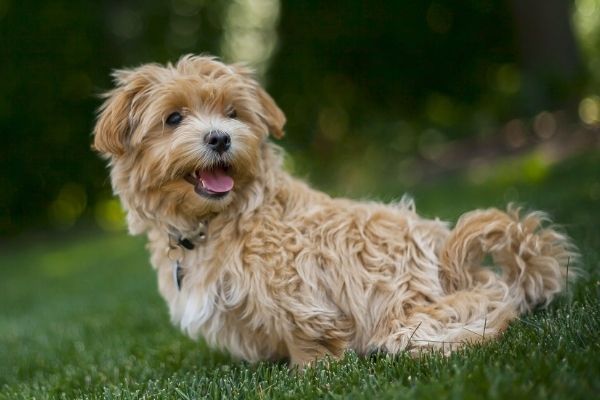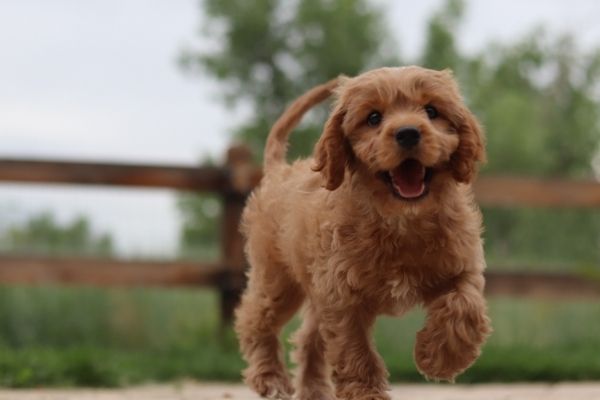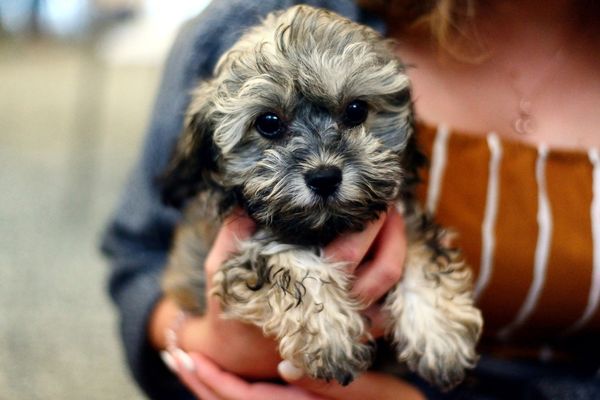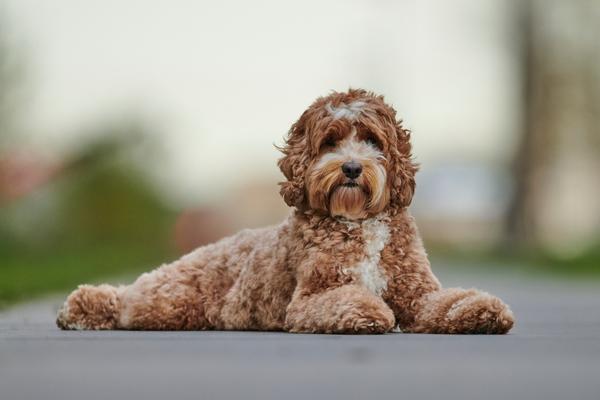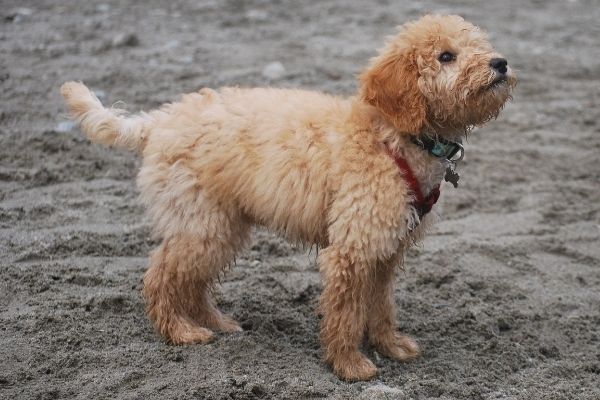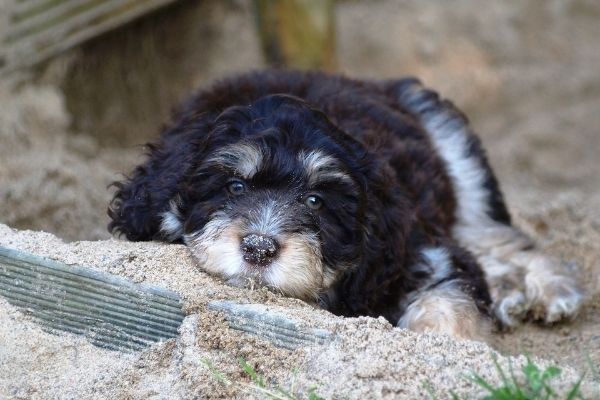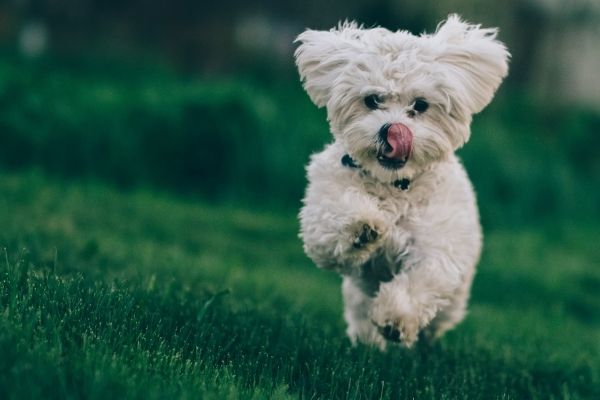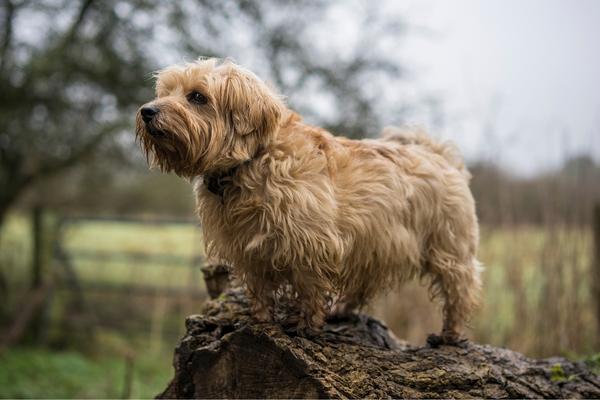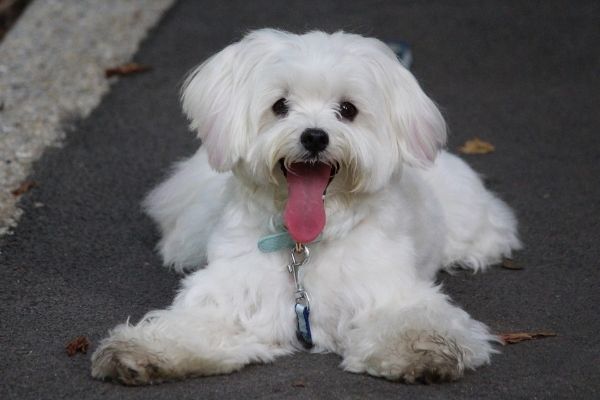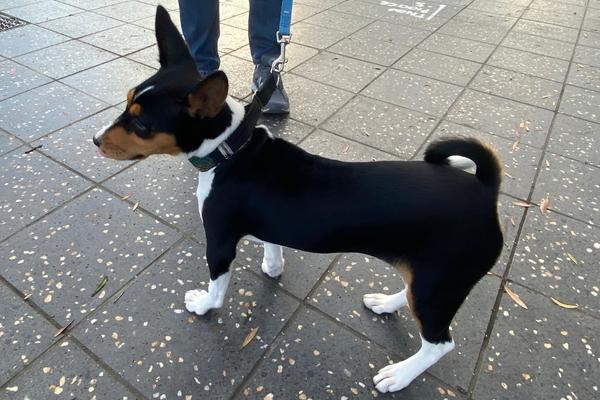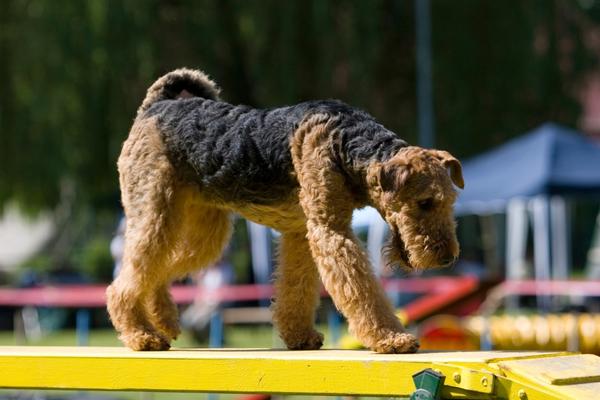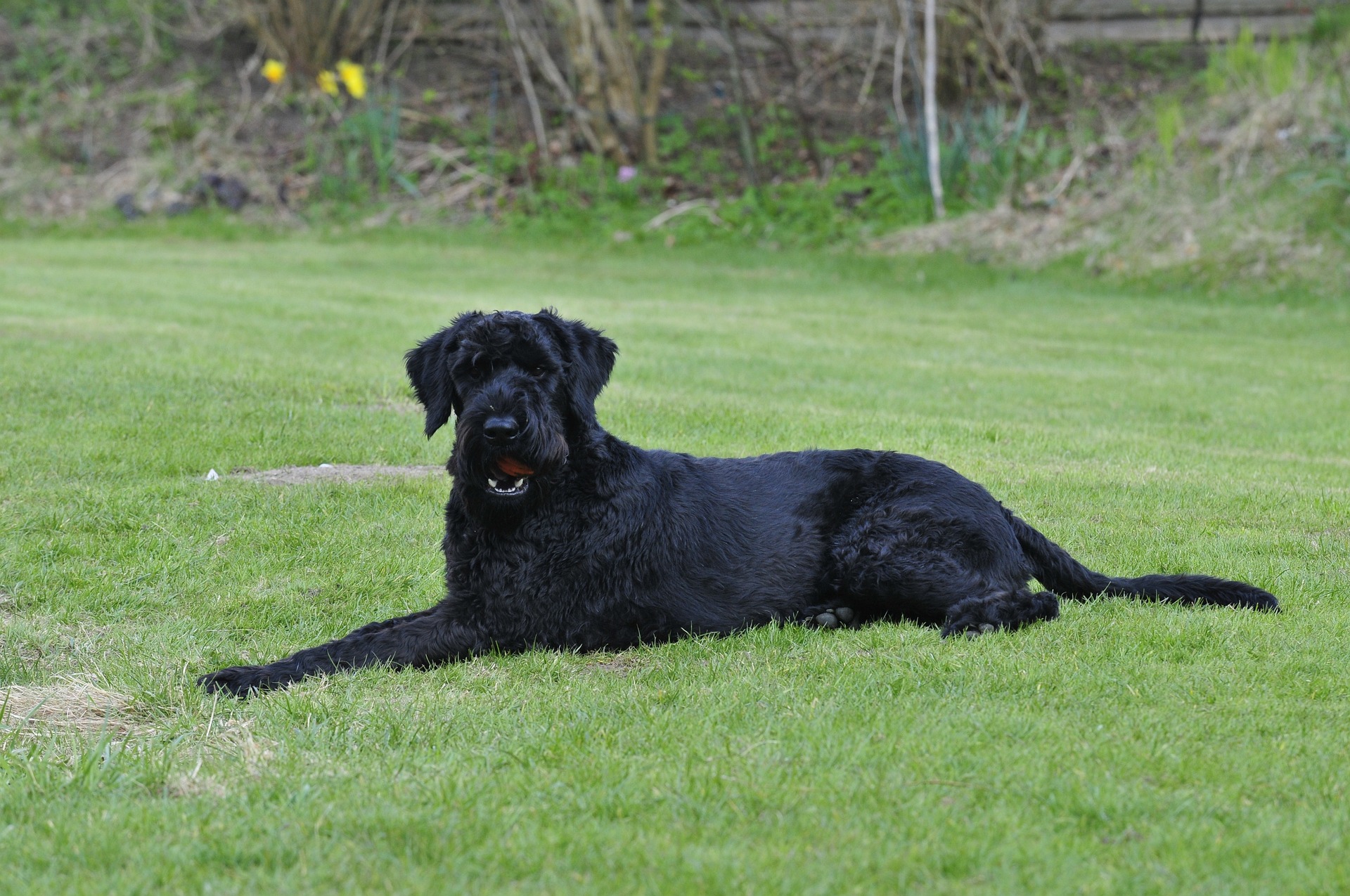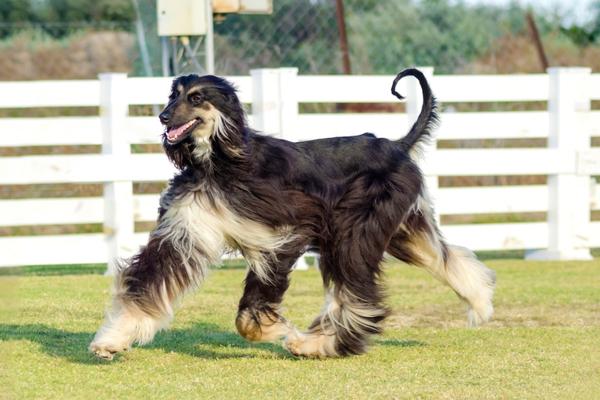Poodle Mixes — The Basics on Hypoallergenic Hybrids
Poodles are intelligent and friendly dogs with a curly hypoallergenic coat. These dogs make excellent pets, but are also a popular choice for mix breeding. Hence, it’s no surprise there are over 40 Poodle mixes in existence.
On the whole, Doodle dogs are loving, loyal, and allergy-friendly. However, bear in mind that these crosses don’t come with the same guarantees — for example, predictable personalities — as purebreds.
Why Are Poodle Cross Breeds Popular?
The first Doodle was created back in the 80s, and since then, these mixed breeds have been growing in popularity. Here are a few reasons why:
Cute Canines

Their adorable teddy bear-like appearance is a big draw for prospective pet parents. After all, who could resist that cuteness overload during puppyhood. And, many of these pooches hold onto that look throughout their life.
Various Sizes
Poodle breeds come in three sizes: standard, miniature, and toy.
- Toy/Mini Poodles can be bred with other small dogs to create little lap dogs.
- Standard Poodles can be used to make larger mix breeds, such as the Labradoodle.
Whether you want a small dog to fit in your tiny apartment or a bigger canine companion to join you on long hikes, you can find a size to suit your lifestyle.
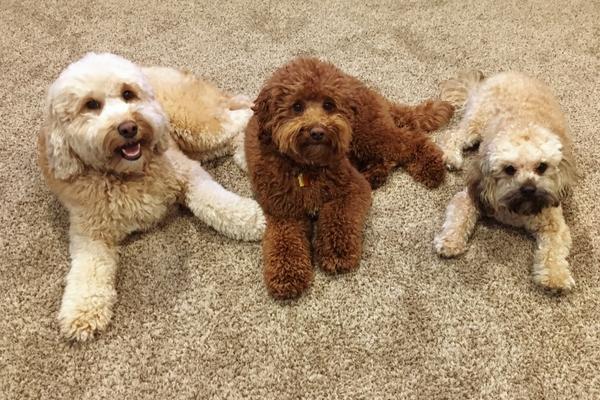
Highly Intelligent

Poodles are one of the most intelligent dog breeds. These curly-haired dogs are easy to train — they pick up new commands and learn new tricks and games quickly. Generally, an Oodle dog should inherit the big brain of their Poodle parent.
Friendly Personality
Poodles are excellent family dogs, they’re gentle and patient with children and will get on well with all ages. Hence, the temperament and friendly nature of Oodles make them a popular choice for people from all walks of life. Doodles like the Cavapoo, Maltipoo, and Cockapoo are typically friendly and loving canines.
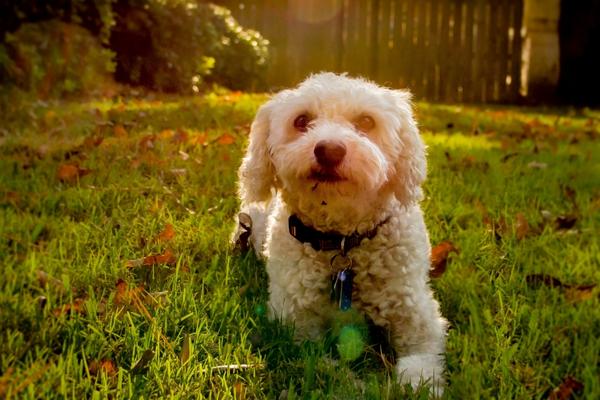
Allergy-Friendly
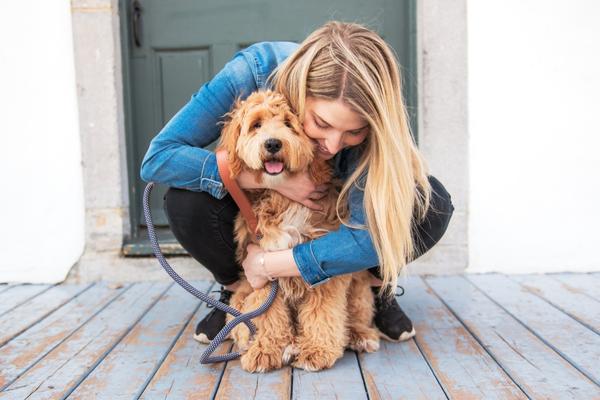
You may not think it because of all the curls, but Poodles are low shedders. And, what little fur a Poodle does shed, gets caught up in the tight curls, so the dander isn’t released into your surroundings. Poodles are hypoallergenic, and their allergy-friendly coat is often passed down to their cross-bred puppies.
Will Poodle Mix Breeds Be Non-Shedding?
If you want a Doodle dog because you have an allergy to dog dander, you’ll be pleased to hear that the majority of Poodle mixes are hypoallergenic.
That said, there is no guarantee your Poodle cross will definitely inherit non-shedding traits. To increase the likelihood, ensure both parents have a low-shedding coat.
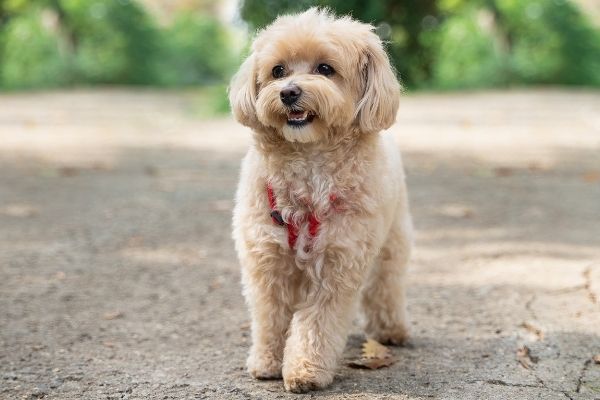
For example, Maltese and Shih Tzus are hypoallergenic. When these breeds are mixed with the Poodle, they create the Maltipoo and Shih Poo — both of these breeds are considered to be allergy-friendly.
Also, you may stand more chance of a hypoallergenic puppy if the Poodle parent is a purebred. The more generations you move away from a pedigree breed, the greater the likelihood the puppies will lose some of the original breed characteristics — this may include the hypoallergenic coat.
Oodle Dogs Coat Types
The type of coat that your Doodle crossbreed ends up with depends which generation they are in the breeding process. There is a wide range of genetic jargon that comes in here, such as F1, F2, or even F1b. But what do these mean?
F1 Doodles
First-generation Doodles (F1) are the combination of two purebred parents.
So, if you have an F1 Goldendoodle, it would have been bred from a pure Poodle and a pure Golden Retriever. This also means that an F1 is going to be 50% of each of their parents.
In short, their coat type is far more predictable — but you still cannot guarantee these dogs will be 100% allergy-friendly or how much they will actually shed, especially if the other parent is a non-hypoallergenic dog.
F2 Doodles
These Poodle mixes are a result of two F1 parents.
However, this is often where it gets complicated. The ability to predict what characteristics they will bring from each parent becomes even more difficult. Even if you have two F1 Doodles with hypoallergenic coats, whether the pups follow suit is still luck of the draw.
F1b Doodles
The F1b Doodle is a mix of an F1 Doodle and pure Poodle, giving them a 75/25% split/mix. So, keeping with our Goldendoodle as an example — an F1b would typically work out at 75% Poodle and 25% Golden Retriever.
As this type is predominantly more Poodle, in theory, the likelihood of a low-shedding Doodle should be favorable. But, like we said, you can’t count on it. Although less common, the breeder could use the non-Poodle purebred parent and an F1 Doodle. This could lead to the ratio leaning in favor of a heavier-shedding pooch.
Disadvantages of Poodle Mixes
While these dogs are popular, and appear to be the perfect canine companion, there are a few downsides to take into consideration.
Here are the main drawbacks of Poodle crosses:
- Can develop health issues and problems from both parents.
- Higher price tag for designer dogs.
- Unlikely to be genetically tested.
- May not inherit the best characteristics from parents.
- They aren’t a recognized breed — no standard.
- ‘Designer doggy’ is just a posh name for a mutt!
- Personality can be unpredictable.
- May not be hypoallergenic.
- Many come from puppy farms or backyard breeders looking to cash in on a popular trend, with no care for the dog or you as the new owner.
Poodle Cross Breeds
With over 40 different Poodle mix breeds, it can be tough to narrow it down to the best breed for your lifestyle. To give you an idea, we’ve put together a few of them:
Purebred Hypoallergenic Alternatives
If you’re after an Oodle for the fur and low-shedding characteristics of a Poodle, why not take a look at these hypoallergenic pure breeds:
Small Hypoallergenic Dogs
To discover more, take a look at our breed list of Small Hypoallergenic Dogs.
Medium Hypoallergenic Dogs
To discover more, take a look at our breed list of Medium Hypoallergenic Dogs.
Large Hypoallergenic Dogs
To discover more, take a look at our breed list of Large Hypoallergenic Dogs.
Conclusion
Doodles have their appeal, they’re cute canines that will melt anyone’s heart. And, for the most part, they’re allergy-friendly. But, unlike hypoallergenic purebreds, you can’t be 100% certain how much they’re going to shed or what temperament they’ll have — it can be a bit of a gamble.
Granted, they’re popular, like for example, the small Poodle mix Maltipoo or Shih Poo, or the larger Labradoodle and Goldendoodle. But, there are also alternatives to Poodle mixes if you have allergies.
Poodle Mix Breeds FAQs
Are Oodles the Only Hypoallergenic Mix Breeds?
No. Other hypoallergenic mixed breeds include, the:
- Shorkie (Yorkshire Terrier and Shih Tzu).
- Cavachon (Cavalier King Charles Spaniel and Bichon Frise).
- Afador (Afghan Hound and Labrador).
Which Dog Is Similar to Poodle?
Poodles are highly-intelligent and friendly dogs with a curly and hypoallergenic coat. But they aren’t for everyone. The following alternatives have a curly coat, similar to the Poodle’s, and are also athletic and good companion dogs:
If you want to find more, check out our guide on Dogs That Look Like Poodles.
What Dogs Are Mixed With Poodles?
Poodles come in three different sizes — standard, miniature, and toy. Therefore, they can be mixed with a broad range of dog breeds, such as:
- Labrador.
- Maltese.
- Shih Tzu.
- Bichon Frise.
- Golden Retriever.
- German Shepherd.
- Cocker Spaniel.
- Schnauzer.
Do Any Poodle Mixes Shed?
Poodle mixes can shed but how much will depend on the characteristics they’ve inherited from both parents. As well as what generation they are — F1, F2, etc.
What Is the Best Mix With Poodles?
No one Poodle mix is the best, as each brings its own pros and cons to the table. But some of the most popular Oodles are:

